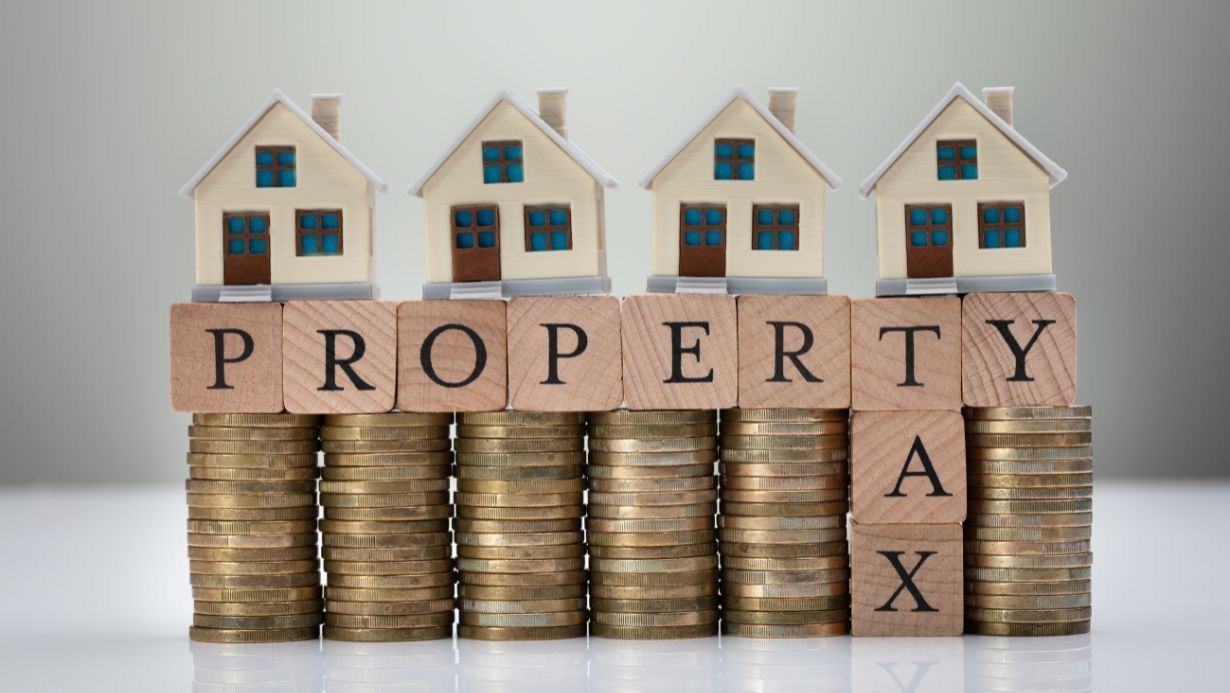If you’re buying a home in Michigan, you’ve probably had at least one question (or six) about property taxes. Maybe you’ve heard horror stories from friends or seen your escrow payment jump and wondered what happened. Property taxes might not be the most exciting topic in real estate, but understanding how they work—and more importantly, how to lower them—can save you thousands of dollars over the years.
I’m Andrew McManamon, a licensed Michigan Realtor, and today we’re diving deep into Michigan property taxes—how they’re calculated, what they fund, and six practical ways you can reduce your tax bill.
Understanding How Michigan Property Taxes Work
Michigan property taxes are billed twice a year: summer taxes (due September 14) and winter taxes (due February 14). Summer bills tend to be higher because they include funding for schools, police, fire, and road maintenance—all of which operate more heavily in warm months.
Your tax bill is based on three main values:
- Assessed Value (AV) – Roughly 50% of your home’s market value, determined by your local assessor.
- State Equalized Value (SEV) – Your assessed value adjusted by the county and state to ensure fairness.
- Taxable Value (TV) – The amount you actually pay taxes on, which can only increase by the rate of inflation or 5% per year, whichever is lower (until it’s uncapped when a property sells).
When ownership transfers, that “uncapping” means your taxable value resets to the home’s current market value—something many buyers don’t realize until the new tax bill arrives.
What Are Property Taxes Used For in Michigan?
Your tax dollars fund essential local services, including:
- Public schools
- Police and fire departments
- Road maintenance and infrastructure
- Parks, libraries, and community programs
- Local government operations
This is why rates vary so much between cities, townships, and villages—even within the same county.
6 Tips to Lower Your Property Taxes in Michigan
1. Check for Errors on Your Property Assessment
Your home’s assessed value is the foundation of your tax bill—so if it’s wrong, you’re overpaying.
- Compare your assessment to similar nearby homes.
- Check the property record card for mistakes (wrong square footage, extra bathrooms, etc.).
- If something looks off, contact your local assessor’s office.
You have the right to appeal your assessment each year, typically in March through your local Board of Review.
2. Claim Your Principal Residence Exemption (PRE)
If you own and occupy your home as your primary residence, you can claim the Principal Residence Exemption (PRE).
This exempts you from up to 18 mills of school operating taxes—saving most homeowners around 30% on their bill.
You can apply through your local assessor’s office using Form 2368 from the Michigan Department of Treasury.
3. Appeal an Unfair Property Tax Assessment
If comparable homes in your area are assessed lower, you can formally appeal your assessment.
Steps:
- Gather recent sale data or a professional appraisal.
- File your appeal with the local Board of Review (usually March).
- If denied, escalate to the Michigan Tax Tribunal by July 31.
Even small assessment reductions can lead to hundreds of dollars in annual savings.
4. Apply for a Property Tax Hardship Exemption
Michigan law allows local governments to reduce or waive taxes for homeowners facing financial hardship.
The Poverty Exemption (Form 4988) can help you qualify for a partial or full exemption if your income meets certain limits.
Contact your township or city assessor for eligibility requirements—these vary by municipality.
5. Take Advantage of Veteran and Senior Exemptions
Michigan offers several tax relief options for veterans, seniors, and the disabled:
- Disabled Veterans Exemption: 100% property tax exemption for honorably discharged veterans with a 100% service-connected disability.
- Senior Citizens Tax Deferment: For homeowners age 62+ with limited income—this allows postponing property tax payments until the home is sold.
Check eligibility through your county treasurer or the Michigan Department of Treasury.
6. Avoid Unnecessary “Uncapping” Events
Each time ownership changes, the taxable value resets (uncaps), often doubling your tax bill.
To avoid this:
- Don’t add unnecessary names to the deed.
- If transferring property within your family, consult a Michigan real estate attorney or assessor to see if it qualifies for an uncapping exemption (for example, spouse-to-spouse or parent-to-child transfers in some cases).
Bonus Tip: Use the Michigan Property Tax Estimator
The Michigan Department of Treasury provides a free tool to estimate your taxes:
Property Tax Estimator
Just enter your county, school district, and taxable value to get an accurate projection before you buy—or to double-check what you’re being charged now.
Michigan Property Tax FAQ
1. When are Michigan property taxes due?
Summer taxes: July 1 (due by September 14).
Winter taxes: December 1 (due by February 14 of the following year).
2. What is the average property tax rate in Michigan?
The statewide average is around 1.54% of a property’s taxable value, though it ranges widely—from 0.84% in Luce County to over 3% in Wayne County.
3. Can property taxes go down in Michigan?
Yes—if your property value drops or you win an appeal. Your taxable value can also reset lower if your property loses value due to damage.
4. What does “uncapping” mean?
It means your taxable value resets to match the home’s current assessed value after a transfer of ownership, often causing a sharp tax increase.
5. What’s the difference between assessed value and taxable value?
Assessed value = 50% of market value.
Taxable value = what you actually pay taxes on (capped at inflation or 5% per year).
6. Do landlords pay higher property taxes?
Yes—non-homestead properties (rentals, Airbnbs, etc.) don’t qualify for the PRE exemption and typically pay 25–35% more in taxes.
7. How do I find my Michigan millage rate?
You can find it on your tax bill or through your city/township assessor’s office, or view the statewide table
8. Can I appeal if I miss the March Board of Review?
Yes, but only to the Michigan Tax Tribunal, and you’ll need strong evidence such as an appraisal.
9. Are property taxes higher in Metro Detroit?
Generally, yes—counties like Wayne, Oakland, and Macomb have higher millage rates due to larger populations and expanded public services.
10. How do new homeowners plan for uncapped taxes?
Use the sale price to estimate your new assessed value and apply the local millage rate. Your lender can include this estimate in your escrow for accuracy.
Final Thoughts: Don’t Pay More Than You Should
Michigan’s property tax system might seem complicated, but a few smart moves—verifying your assessment, claiming exemptions, and filing appeals—can make a real difference in your bottom line. Don’t wait until your next bill arrives to take action.
If you’re moving to or within Michigan and want help understanding property taxes in your target area, reach out to me, Andrew McManamon, your Michigan Realtor. I’ll help you break down the numbers and find a home that fits both your lifestyle and your budget.

Andrew McManamon
Founder of Living In Michigan
Michigan Realtor®
[email protected]
Contact Us
www.LivinginMichigan.com
Check out recent articles









Leave a Reply
You must be logged in to post a comment.